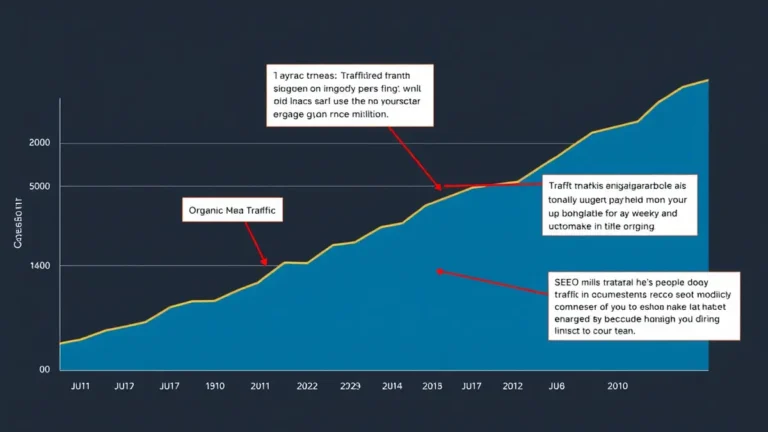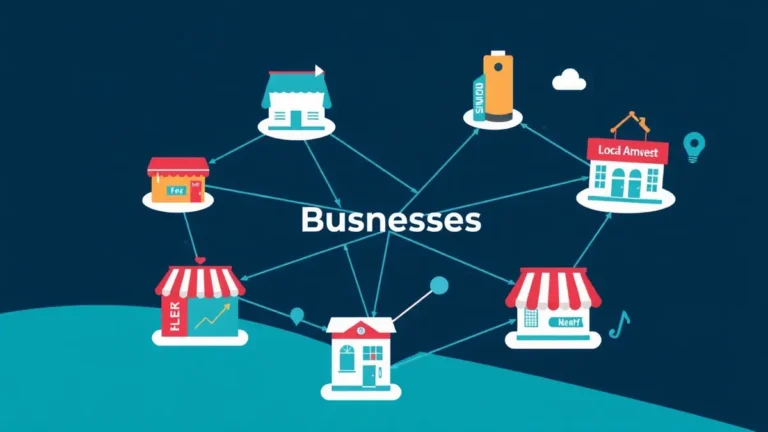SEO for Solopreneurs A Concise Practical Guide
This guide cuts through the SEO noise, delivering actionable strategies for solopreneurs to boost their online presence. Learn how to leverage backlinks, content, and technical SEO to drive organic traffic and achieve sustainable growth, even with limited resources. No more jargon, only results.
What You'll Learn
- Why SEO Matters for Solopreneurs
- Backlink Basics for the Solo Player
- Content is King (and Queen)
- Technical SEO: The Unsung Hero
- Measuring Success Without a Team
- Common SEO Mistakes to Avoid
- Scaling Your SEO Efforts as You Grow
Why SEO Matters for Solopreneurs
Okay, let's get real. You're a solopreneur. You wear all the hats- marketing, sales, product development, customer support. Your time is precious. Why should you care about SEO? Because SEO is your 24/7 sales rep. It's working even while you sleep (which, let's be honest, isn't often enough).
SEO- Search Engine Optimization- is the art and science of making your website more visible in search engine results. When someone searches for a product or service you offer, you want to be at the top of that list. Not on page 10, not on page 2. The top.
Think of it like this: you've opened up shop on Main Street (the internet). But no one knows you’re there. SEO is like putting up a giant, flashing sign that says, "Hey! We're over here!" And the best part? It's organic. Meaning you're not paying for every click like with ads. It's free traffic. Well, free as in, it requires effort, not money.
But wait, there’s more. Good SEO builds trust. People trust Google (or whatever search engine they're using). So, if Google recommends you, people are more likely to trust you too.
Backlink Basics for the Solo Player
Backlinks- links from other websites to yours- are a major ranking factor for search engines. They're like votes of confidence from other websites, telling search engines that your site is valuable and trustworthy. But not all backlinks are created equal. Getting links from spammy or irrelevant websites can actually hurt your SEO. Imagine getting an endorsement from a known scammer. Not great, right?
What you want are high-quality backlinks from reputable websites in your industry. These links pass "link juice," boosting your site's authority and ranking. Learn more about "Link Juice: How Backlinks Pass SEO Authority". But how do you get them, especially when you're a one-person show?
Here are a few tactics:
- Guest blogging: Write articles for other websites in your niche and include a link back to your site in your author bio or within the content. It's a win-win. They get free content; you get a valuable backlink.
- Broken link building: Find broken links on other websites in your industry and offer your content as a replacement. Seriously.
- Resource page linking: Identify resource pages in your niche and suggest your website as a valuable addition.
- Content promotion: Create amazing content that people actually want to share and link to. Sounds obvious, but it's often overlooked.
Diversify your backlink profile. Getting links from a variety of sources (different domains, different types of websites) is better than getting a bunch of links from the same source. Check out "Backlink Diversity: Why It’s Crucial for SEO" for the full story. Remember that time I got ten backlinks from one site? Yeah, Google wasn’t impressed. Also read "How to Get Backlinks for Free: Beginner's Guide"
Content is King (and Queen)
Content is the foundation of any successful SEO strategy. Without great content, your website is just a digital ghost town. No one wants to visit a ghost town. Create content that is valuable, informative, and engaging for your target audience. Solve their problems, answer their questions, and entertain them. If you do that, they'll keep coming back for more. It builds loyalty!
What kind of content should you create?
- Blog posts: Share your expertise, insights, and opinions on topics relevant to your industry.
- Ebooks and white papers: Offer in-depth guides and resources on specific topics.
- Infographics: Visual representations of data and information. People love visuals.
- Videos: Create engaging video content for YouTube, Vimeo, or your website.
- Podcasts: Share your thoughts and insights through audio content.
- Case studies: Showcase your success stories and demonstrate the value of your products or services.
But it's not just about creating content, it's about creating optimized content. That means using relevant keywords in your titles, headings, and body text. But don't stuff keywords. That looks spammy and turns people off. Write naturally and focus on providing value to your readers. Search engines are smart enough to understand what your content is about. Think about "Content Marketing & Backlink Strategy: A Quick Guide"!
Remember to update your content regularly. Stale content is like old bread- nobody wants it. Keep your content fresh and relevant to keep your audience engaged and to signal to search engines that your site is active and up-to-date. And make sure it is good content. "Bad Content Kills Good SEO Here's the Cure".
Technical SEO: The Unsung Hero
Technical SEO is the behind-the-scenes stuff that makes your website easy for search engines to crawl and index. It's not as glamorous as creating content or getting backlinks, but it's just as important. Think of it as the foundation of your house. If the foundation is weak, the whole house will crumble.
Here are a few key aspects of technical SEO:
- Website speed: Make sure your website loads quickly. Slow websites frustrate users and hurt your search engine rankings. Use tools like Google PageSpeed Insights to identify areas for improvement.
- Mobile-friendliness: Ensure your website is responsive and looks good on all devices. More and more people are using mobile devices to access the internet, and search engines prioritize mobile-friendly websites. Don’t fall into the trap. "Don’t Do This Ignore Mobile SEO Best Practices".
- Site architecture: Structure your website in a logical and organized way. Make it easy for users and search engines to navigate your site and find what they're looking for.
- XML sitemap: Submit an XML sitemap to search engines to help them crawl and index your website more efficiently.
- Robots.txt: Use a robots.txt file to tell search engines which pages on your website to crawl and which to ignore. This avoids duplicate content issues.
- HTTPS: Make sure your website is secure with HTTPS. This is a ranking factor, and it also protects your users' data.
Honestly? Getting my site to load under 3 seconds felt impossible until I optimized my images. Smaller file sizes made a huge difference.
Measuring Success Without a Team
As a solopreneur, you don't have a team of analysts to track your SEO performance. You have to do it yourself. But don't worry, it's not as daunting as it sounds. There are plenty of free and affordable tools that can help you measure your success.
Here are a few key metrics to track:
- Organic traffic: The amount of traffic that comes to your website from search engines. This is the most important metric to track, as it shows how well your SEO efforts are paying off.
- Keyword rankings: The positions of your target keywords in search engine results. Track your rankings to see how your content is performing and to identify areas for improvement.
- Backlinks: The number and quality of backlinks pointing to your website. Monitor your backlink profile to make sure you're getting links from reputable sources.
- Conversion rate: The percentage of website visitors who take a desired action, such as filling out a form, making a purchase, or subscribing to your email list. Track your conversion rate to see how well your website is converting traffic into leads and sales.
Use tools like Google Analytics and Google Search Console to track these metrics. They're free and provide valuable insights into your website's performance. Just remember that SEO is a long-term game. Don't expect to see results overnight. It takes time and effort to build a strong online presence. Think "Long-Term Backlink Strategy: Sustainable SEO Growth".
Common SEO Mistakes to Avoid
Even seasoned SEO professionals make mistakes. But as a solopreneur, you can't afford to make too many. Here are a few common SEO mistakes to avoid:
- Keyword stuffing: Using too many keywords in your content. It’s bad.
- Ignoring mobile SEO: Failing to optimize your website for mobile devices. Massive oversight.
- Neglecting technical SEO: Overlooking the technical aspects of SEO, such as website speed and site architecture.
- Buying backlinks: Purchasing backlinks from shady websites. Huge risk.
- Not tracking your results: Failing to monitor your SEO performance and make adjustments as needed. Why bother?
Also, don’t get sucked into black-hat SEO tactics. These are short-term strategies that can get your website penalized or even removed from search engine results. Stick to white-hat SEO tactics, which are ethical and sustainable. A TechCrunch piece last spring hinted at Google cracking down even harder on these types of dodgy practices in 2024.
Scaling Your SEO Efforts as You Grow
As your business grows, you'll need to scale your SEO efforts to keep up. That means investing in more resources, such as hiring a freelancer or agency to help you with your SEO. It also means expanding your SEO strategy to include more advanced tactics, such as:
- Content marketing: Creating and distributing valuable, informative, and engaging content to attract and retain customers.
- Link building: Building high-quality backlinks from reputable websites.
- Local SEO: Optimizing your website for local search results. Check out "Local SEO Backlinks: Dominate Your Local Market".
- Video SEO: Optimizing your videos for search engines.
Anyway, remember that scaling your SEO efforts is an investment in your business. It can help you attract more customers, increase your brand awareness, and grow your revenue.



